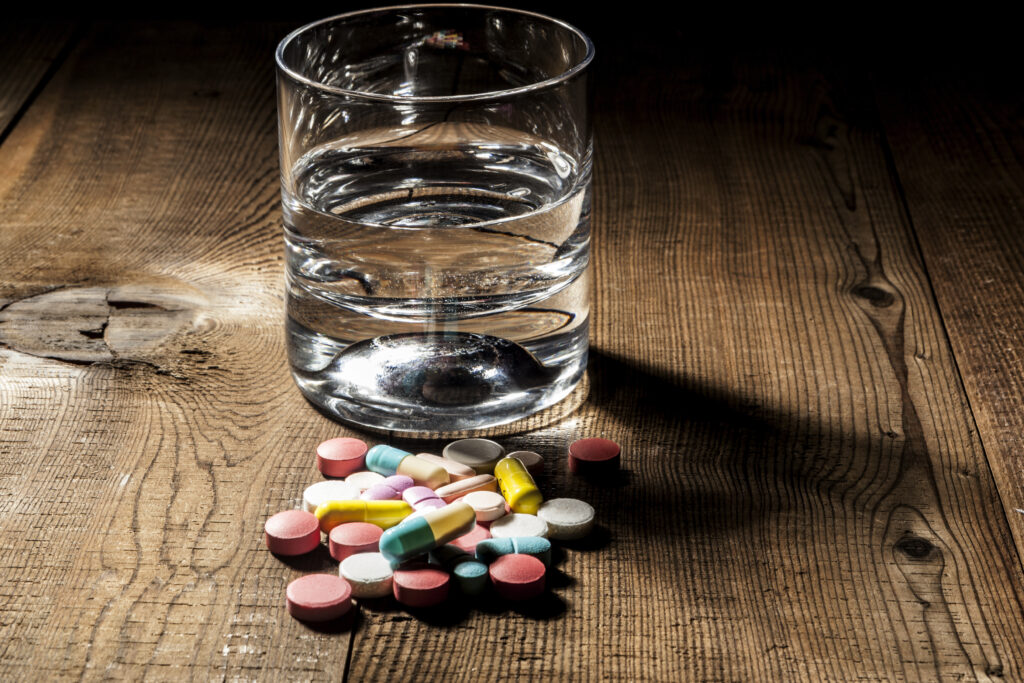If you or someone you love is considering recovery from substance use, one of the first questions that comes to mind is often: “How long does it take to detox from drugs?” It’s a natural and important question. Understanding the detox timeline can help you prepare mentally, physically, and practically for the journey ahead.
At 7 Summit Pathways in Tampa, Florida, we understand that detoxification is both a physical and emotional process. While detox timelines vary based on the substance, the duration of use, and individual health factors, we’re here to guide you through what to expect and provide compassionate, medically-supervised support every step of the way.
If you’re ready to take the first step toward recovery, call us today at (813) 212-8129.
What Is Drug Detox?
Drug detoxification, or detox, is the process by which your body eliminates toxic substances and adjusts to functioning without them. According to the Substance Abuse and Mental Health Services Administration (SAMHSA), detox is often the first critical step in addiction treatment, allowing individuals to safely manage withdrawal symptoms under medical supervision.
Medical detox involves 24/7 clinical care, medication management, and emotional support to help you through the acute withdrawal phase. At 7 Summit Pathways, we offer personalized detoxification programs designed to keep you safe, comfortable, and supported.
How Long Does Drug Detox Take? Factors That Influence Timeline
The length of drug detox depends on several key factors:
1. Type of Substance
Different drugs stay in your system for different lengths of time and produce varying withdrawal symptoms. For example, alcohol and benzodiazepines can cause life-threatening withdrawal symptoms, while opioids produce intensely uncomfortable but typically non-fatal withdrawal.
2. Duration and Frequency of Use
Long-term, heavy use typically results in more severe and prolonged withdrawal symptoms compared to short-term or occasional use.
3. Method of Use
How a drug is consumed (injected, smoked, snorted, or taken orally) affects how quickly it enters and leaves your system, which can impact detox duration.
4. Individual Health Factors
Your age, metabolism, liver and kidney function, mental health status, and overall physical health all play roles in how quickly your body processes and eliminates substances.
5. Polydrug Use
Using multiple substances simultaneously can complicate detox timelines and require more comprehensive medical oversight.
The National Institute on Drug Abuse (NIDA) emphasizes that medically-supervised detox significantly improves safety and outcomes, particularly for substances with dangerous withdrawal profiles.
Drug Detox Timelines by Substance
Let’s break down typical detox timelines for common substances. Remember, these are general guidelines—your individual experience may vary.
Alcohol Detox Timeline
Duration: 5-7 days for acute symptoms; some symptoms may persist for weeks
Alcohol withdrawal can be dangerous and even life-threatening without medical supervision. According to the National Institute on Alcohol Abuse and Alcoholism (NIAAA), symptoms typically follow this pattern:
- 6-12 hours: Anxiety, tremors, headache, nausea, insomnia
- 12-24 hours: Hallucinations may begin
- 24-48 hours: Peak risk for seizures
- 48-72 hours: Risk period for delirium tremens (DTs), a severe and potentially fatal complication
- 5-7 days: Most acute physical symptoms subside
Understanding the difference between drug and alcohol detox helps you know what to expect during treatment.
Opioid Detox Timeline (Heroin, Fentanyl, Prescription Painkillers)
Duration: 5-10 days for acute symptoms; post-acute withdrawal can last months
Opioid withdrawal, while extremely uncomfortable, is rarely life-threatening. The timeline depends on whether the opioid is short-acting (heroin, oxycodone) or long-acting (methadone):
Short-Acting Opioids:
- 6-12 hours: Symptoms begin (muscle aches, anxiety, restlessness, sweating)
- 1-3 days: Peak symptoms (severe muscle pain, nausea, vomiting, diarrhea, intense cravings)
- 5-7 days: Acute symptoms gradually improve
- Weeks to months: Post-acute withdrawal symptoms (mood swings, fatigue, sleep disturbances)
Long-Acting Opioids:
- 24-48 hours: Symptoms begin
- 3-5 days: Peak symptoms
- 7-14 days: Acute symptoms subside
Many people benefit from medication-assisted treatment (MAT) during opioid detox, which can significantly reduce cravings and withdrawal symptoms.
Benzodiazepine Detox Timeline (Xanax, Valium, Klonopin, Ativan)
Duration: 2-8 weeks or longer; must be medically supervised
Benzodiazepine withdrawal can be dangerous and even fatal if not properly managed. According to SAMHSA, medical supervision is essential for safe benzo detox.
Short-Acting Benzos (Xanax, Ativan):
- 1-4 days: Symptoms begin (anxiety, insomnia, tremors)
- 5-10 days: Peak symptoms (panic attacks, seizures, confusion)
- 2-4 weeks: Symptoms gradually decrease
Long-Acting Benzos (Valium, Klonopin):
- 1-2 weeks: Symptoms begin
- 2-4 weeks: Peak symptoms
- 4-8 weeks or longer: Gradual symptom reduction
Benzodiazepine detox typically involves a medically-supervised taper to prevent dangerous complications.
Stimulant Detox Timeline (Cocaine, Methamphetamine, Prescription Stimulants)
Duration: 1-2 weeks for acute symptoms; depression and cravings may persist for months
Stimulant withdrawal is primarily psychological, though physical symptoms do occur:
- First 24-72 hours: Crash phase (extreme fatigue, increased appetite, depression, agitation)
- 3-7 days: Continued fatigue, vivid dreams, increased appetite, anxiety
- 1-2 weeks: Mood stabilizes, energy begins returning
- Weeks to months: Cravings, anhedonia (inability to feel pleasure), depression
Marijuana Detox Timeline
Duration: 1-2 weeks for most symptoms
While marijuana withdrawal is generally mild compared to other substances, regular, heavy users may experience:
- 1-3 days: Irritability, anxiety, sleep difficulties
- 4-14 days: Peak symptoms (mood swings, cravings, decreased appetite)
- 2-4 weeks: Most symptoms resolve
Synthetic Drug Detox Timeline (K2/Spice, Bath Salts)
Duration: Varies widely; 1-2 weeks typical
Synthetic drugs produce unpredictable effects and withdrawal symptoms. Medical supervision is strongly recommended due to the unknown chemical compositions and potential complications.
What Happens After Detox?
Detox is just the first step in recovery. According to NIDA, detoxification alone is rarely sufficient for long-term recovery. After completing detox, continuing into comprehensive addiction treatment significantly improves outcomes.
At 7 Summit Pathways in Tampa, we offer a full continuum of care:
- Inpatient Treatment Programs: Intensive, immersive care in a supportive environment
- Partial Hospitalization Program (PHP): Structured daily treatment while living at home or in sober housing
- Intensive Outpatient Program (IOP): Flexible treatment for those with work or family commitments
- Outpatient Treatment: Ongoing support as you transition back to daily life
We also offer specialized services including:
- Dual Diagnosis Treatment: For co-occurring mental health and substance use disorders
- Group Therapy: Peer support and shared healing
- Trauma Therapy: Addressing underlying trauma that may contribute to addiction
- Family Therapy: Healing relationships and building support systems
Why Choose Medical Detox Over “Cold Turkey”?
Attempting to detox alone—going “cold turkey”—can be dangerous and is often unsuccessful. Here’s why medical detox is the safer, more effective option:
Safety
Certain substances, particularly alcohol and benzodiazepines, can produce life-threatening withdrawal symptoms including seizures, severe dehydration, and cardiac complications. Medical supervision ensures immediate intervention if complications arise.
Comfort
Withdrawal symptoms can be extremely uncomfortable. Medical detox programs can provide medications to ease symptoms, making the process more bearable and reducing the risk of relapse.
Success Rates
Research from SAMHSA shows that medically-supervised detox followed by comprehensive treatment significantly improves long-term recovery outcomes compared to attempting detox alone.
Emotional Support
Detox is emotionally challenging. Having professional support and a safe environment helps you stay motivated and focused on recovery.
Seamless Transition to Treatment
Medical detox programs like ours at 7 Summit Pathways provide a smooth transition into ongoing treatment, setting you up for long-term success.
What to Expect During Detox at 7 Summit Pathways in Tampa, FL
When you choose outpatient detox at 7 Summit Pathways, here’s what you can expect:
1. Comprehensive Assessment
We begin with a thorough evaluation of your physical health, substance use history, mental health status, and personal circumstances to create a customized detox plan.
2. Medical Monitoring
Our experienced medical team monitors your vital signs, manages medications, and ensures your safety throughout the detox process.
3. Medication Management
When appropriate, we use FDA-approved medications to reduce withdrawal symptoms, prevent complications, and ease cravings.
4. Nutritional Support
Substance use often leads to nutritional deficiencies. We provide proper nutrition to support your body’s healing process.
5. Emotional Support
Our compassionate counselors provide emotional support, coping strategies, and encouragement throughout your detox journey.
6. Preparation for Ongoing Treatment
We work with you to develop a comprehensive treatment plan that continues after detox, ensuring the best chance for lasting recovery.
Post-Acute Withdrawal Syndrome (PAWS)
Even after acute detox symptoms subside, many people experience Post-Acute Withdrawal Syndrome (PAWS). According to research published by the National Center for Biotechnology Information (NCBI), PAWS can last for weeks or months and includes symptoms such as:
- Mood swings and irritability
- Anxiety and depression
- Difficulty concentrating
- Sleep disturbances
- Fatigue
- Decreased interest in activities
- Strong cravings
Understanding PAWS is important because these symptoms can catch people off guard weeks or months into recovery. Our comprehensive treatment programs help you manage PAWS through ongoing therapy, support groups, and healthy coping strategies.
How to Support Someone Through Detox
If someone you love is going through detox, here’s how you can help:
- Educate Yourself: Understanding what they’re experiencing helps you provide better support
- Be Patient: Withdrawal symptoms can cause irritability and mood swings
- Encourage Professional Help: Advocate for medically-supervised detox
- Avoid Judgment: Addiction is a disease, not a moral failing
- Take Care of Yourself: Supporting someone through detox is emotionally taxing—don’t neglect your own wellbeing
- Consider Family Therapy: Our family therapy program helps heal relationships and build healthy support systems
Insurance Coverage for Drug Detox in Tampa, FL
Most insurance plans cover medically-necessary detoxification services. At 7 Summit Pathways, we accept most major insurance providers and can help you understand your coverage options.
We also offer:
- Free insurance verification
- Assistance with pre-authorization
- Flexible payment plans
- Help navigating the insurance process
Don’t let concerns about cost prevent you from seeking help. Call us at (813) 212-8129 to discuss your options.
Frequently Asked Questions About Drug Detox
Q: Can I detox at home? A: While some people attempt home detox, it’s generally not recommended, especially for alcohol, benzodiazepines, or long-term substance use. Medical complications can arise quickly, and professional supervision significantly improves safety and success rates.
Q: Will I need to take time off work for detox? A: This depends on your situation and the substance. Our ambulatory detox program may allow some flexibility, but many people benefit from taking time off to focus fully on their health and recovery.
Q: What happens if I relapse after detox? A: Relapse is common and doesn’t mean failure. If relapse occurs, seeking immediate help is crucial. Your tolerance is lower after detox, which increases overdose risk. Contact us immediately if you or someone you know has relapsed—we’re here to help without judgment.
Q: Is detox covered by insurance? A: Most insurance plans cover medically-necessary detoxification. We can verify your coverage and help you understand your benefits.
Q: How long should I stay in treatment after detox? A: SAMHSA recommends at least 90 days of treatment for the best outcomes, though individual needs vary. We’ll work with you to determine the appropriate length and level of care for your situation.
Q: Can I visit someone during detox? A: Visitation policies vary by program and individual circumstances. We’ll work with you and your loved ones to determine what’s best for recovery.
Take the First Step Toward Recovery Today in Tampa, Florida
Understanding how long detox takes is an important part of preparing for recovery, but remember: detox is just the beginning of your healing journey. At 7 Summit Pathways in Tampa, we provide compassionate, evidence-based care that addresses not just the physical aspects of addiction but the emotional, psychological, and spiritual dimensions as well.
You don’t have to face this alone. Our experienced team is here to support you through detox and beyond, helping you build a foundation for lasting recovery.
Ready to Start Your Detox Journey?
📞 Call 7 Summit Pathways today at (813) 212-8129
📍 Visit us at 1910 Orient Rd, Tampa, FL 33619
Recovery is possible. Let us help you take the first step toward a healthier, substance-free life.
References and Resources
- Substance Abuse and Mental Health Services Administration (SAMHSA): www.samhsa.gov
- National Institute on Drug Abuse (NIDA): www.nida.nih.gov
- National Institute on Alcohol Abuse and Alcoholism (NIAAA): www.niaaa.nih.gov
- National Center for Biotechnology Information (NCBI): www.ncbi.nlm.nih.gov
For more information about detoxification and recovery, explore these resources:
- The Ultimate Guide to Detoxification and Withdrawal
- Understanding the Stages of Addiction Recovery
- What Does It Mean to Be in Recovery?
This article is for informational purposes only and does not constitute medical advice. Always consult with qualified healthcare professionals regarding detox and addiction treatment decisions.




